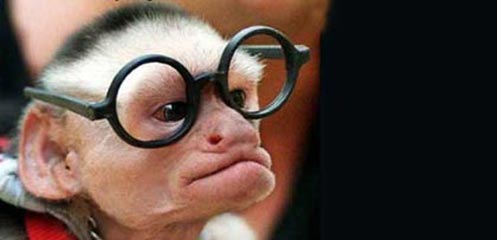David Sedaris at Last!
By Cindy Bailey 11.9.04
I tried getting tickets to see David Sedaris in L.A. once. Sold out. I learned his work was going to be performed at the Old Globe in San Diego. Fantastic! But also sold out. While deep in the north of California, I spotted an ad that said he would be reading in Santa Rosa. Damn if I wasn't going to be on vacation. Finally, he came right to my own neighborhood, at a bookstore just up the street to promote his latest bestseller, Dress Your Family in Corduroy and Denim . But the entry list was already full.
It seemed there would be no David Sedaris for me.
I was angry, but this time I fought back. Ripping into Google, I searched and searched. Mr. Sedaris, I learned, would be performing at Zellerbach Hall on the U.C. Berkeley campus (my alma mater) on November 9, 2004. It was May and who knew where my husband and I would be come November (we're like that). But no matter. We were going to fly in to see David Sedaris if it came to that, because enough is enough. The day tickets went on sale, I bought some, and not long after, the event sold out.
Sitting in Zellerbach Hall on the big day, my expectations were huge, and why wouldn't they be? I had read every book Mr. Sedaris had written, except his latest (still waiting for paperback). I recall a quote on the back of one of his books promising that you will laugh so hard tears will stream from your eyes and snot will dribble from your nose, or something to that effect. Indeed, this was true. You cannot stop laughing and you cannot stop reading until the whole book is done, and then you wait, suspended, hungry, for his next.
For those unacquainted, Sedaris is a master humorist, but not of the punch line variety. His humor seeps in through masterful storytelling and an irreverent style. Aside from his bestsellers, he's read his stories on NPR's Morning Edition , where he made his comic debut, and has written several plays along with his sister, Amy Sedaris, under the name, “The Talent Family.” His essays appear regularly in Esquire and The New Yorker .
When the lights dimmed, a small man in khakis, a button-up blue shirt, and tie walked swiftly to the podium. After pulling papers out of his folders and setting them on the podium, he looked up. The first story, he explained, was something new that he had been asked to write for an anthology. The theme was relationships, and the story, titled, “Old Faithful,” will be appearing in The New Yorker in a few weeks.
Sedaris, I noticed, had an immediate ease with the audience, as if he were addressing extended family at a reunion gathering.
This first story started out in standard Sedaris style: by describing in grotesque detail a boil on his backside that he was intensely worried about. He imagined a doctor having to operate, having to remove his whole backside in order to save his life, and the sad thing is, Sedaris said, that probably no one would even notice his backside was missing. The story eventually shifted to the poignant 13-year relationship he has shared with his boyfriend, Hugh. And that's another thing about Sedaris: you're laughing hard, you're occasionally grossed out, but in the end you're usually also moved.
After describing other gay, male relationships he knew (“Most men in relationships had arrangements,” he explained. “It would only work if the other guy promised to never bring men home. Or to always bring men home.”), and describing how he and Hugh knew each other so well, they didn't have to speak (which led to the restaurant scene in which Sedaris' need to create conversation for appearances sake had him saying, “So Hugh, what do you think about monkeys?”), Sedaris eventually returned to the bathroom, where he tried to look at his boil and Hugh said, “Why don't we lance that thing off?” After mocking the use of the word lance, Sedaris described in gruesome detail the “lancing” job, referring to what came out of the boil as “spraying, oozing custard” or something like that. The audience let out a collective, ghastly “Ewwwwwwwww.” Of course, Hugh then became David's “Sir Lance-a-lot” and the story ended.
Afterwards, Sedaris expressed surprise that we reacted that way. “That's nothing,” he said, implying that he's capable of much more gruesome description, which you know is true if you've read the story in which he tries in vain to flush away incriminating pooh. He did admit that for this story, The New Yorker drew the line at “custard.”
His next story was just as hilarious and yet poignant as the first. It was called “Baby Einstein” and it was about his brother, Paul. If you've read his story about the “Rooster,” then you've been acquainted with the lovable, foul-mouthed ball of fire that is his brother. When I saw Amy Sedaris, David's sister, in an on stage interview a few months prior, she claimed to always have pen and paper ready by the phone whenever Paul called. She was always learning something new from him.
Paul is different than Sedaris' other siblings, he explained in the story, “because he was born in North Carolina.” In describing the excitement and perils of Paul's experiences with his wife's pregnancy and a new baby, Sedaris cracked us up by using Paul's deep Southern accent and colorful choice of words. We were completely taken into the story.
The title comes from the Baby Einstein books Paul buys for his new born baby. Sedaris was hilarious when he described Paul spending hours on the talking books himself, trying to get them to cuss. But the book pronounces each letter individually, so it comes out sounding like, “A-S-S-H-O-L-E,” or “F-U-C-K-Y-O-U,” as Sedaris demonstrated by pronouncing each letter distinctly, mocking the mechanical voice. We rolled on the floor, laughing some more.
After the stories, Sedaris read from his diary. “I don't usually read from my diary. Mostly it's just whining anyway. But sometimes, something shows up.” He read 12 or so entries, most from 2003 and 2004. They were mini stories and anecdotes, all in classic Sedaris style (hilarious!). Among the most memorable included his learning about people who wanted amputations because they felt they were burdened in life with too many limbs. They had a support group and everything, and Sedaris took us with him as he imagined their chat room talks and what would happen if the chainsaw didn't do the job as expected.
There was a joke about a lady making a bet that a man's testicles were shaped like dice.
And then there were the slave monkeys, the subject of a lengthy diary entry that surely will show up in a future book. He opened this one by saying that sometimes he gets bored signing books and he runs out of things to say, so he'll ask the person whose book he's signing odd questions. One day he asked, “So, when was the last time you touched a monkey?” To his surprise, the woman who was getting her book signed looked at her watch and said “four hours ago.” It turned out this woman works for an organization that trains moneys to help paraplegics. Slave monkeys, and Sedaris really wanted to have one.
You come to realize that Sedaris has a serious thing for monkeys because the topic has populated every story of the evening. It was in “Old Faithful” as the subject of dinner-table conversation when he went out with Hugh; it was in “Baby Einstein” as what Sedaris' mother thought Amy will have (a monkey) instead of a baby; and it seemed to have snuck into more than one diary entry.
At the end of his show, Sedaris would tell us that he didn't realize till the end of his first performance on this tour that monkeys were everywhere. Just a coincidence. Right. We all saw the expression he wore when he was describing the slave monkeys, when one was picking through his hair and actually found something, while another was trying to pop black heads off his face, and another was checking out his pockets, and a fourth was eating from his hand. “Pure heaven,” is how he described it. Mr. Sedaris just has a thing for monkeys, that's all. I remember listening to Terry Gross on NPR interview him some months ago, and at that time he was into spiders. Or arachnophobia. I don't recall which. But again, this is just Sedaris.
After the diary entries, Sedaris said that on every tour he sells something, and this time it's Germany. ”First,” he said, “They speak English better than we do.” Among other selling points was something a German store clerk told him, which was if store clerks hear more than five Christmas carols in a row over the loudspeaker, they get a pay raise. “They recognize that Christmas carols are damaging, if you listen to too many. Doesn't that make you want to move there?” Sedaris asked.
Sadly, the one hour was up. Sedaris then submitted himself to a half hour of questions from the audience. He was asked why he lived in Europe. (Sedaris recently moved to London after years of living in Paris.) Among his answers: “I'm a heavy smoker, and it's one place a smoker can live with dignity.” And: “I like being an outsider because nothing is ever your fault.”
Before ending, he took the opportunity to promote someone else's book, which I thought unusual. He explained that he was at the airport and picked this book because he liked the book jacket, and it turned out it was really good. It was the Columnist by Jeffrey Frank, and he held it up for all to see, insisting that we read it, “especially if you write.”
Then it was all over. We could wait in the lobby for Sedaris to sign our books, but that wasn't for me. I got what I came for, which is a barrel of laughs, and to see Sedaris in the flesh, speaking candidly to his audience. And to have my own little piece of Sedaris with me when I read his next work.
Over and out for now. Cindy





